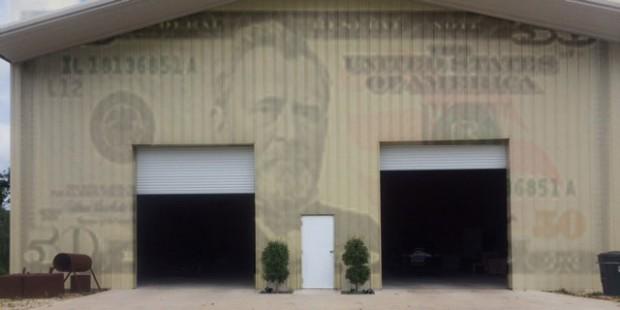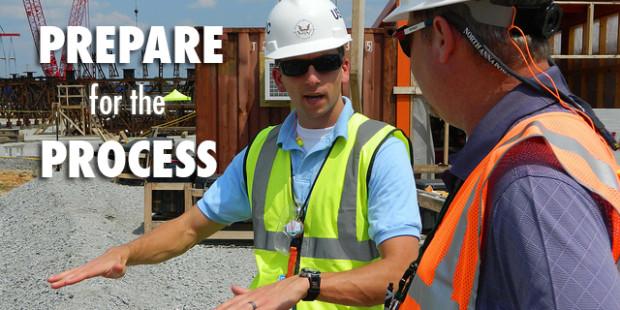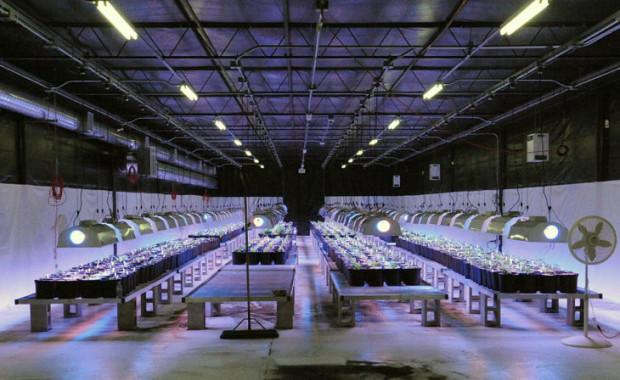4 Important Factors That Will Impact Your Steel Building Cost

For the past decade, the steel industry has undergone many transformations, and in effect it’s changed the way the construction industry views steel buildings. While the steel itself has been around for hundreds of years, designers and owners of metal buildings are seeing many increased benefits. Because of streamlined processes at manufacturers, energy saving paints and coatings, insulated panels and much more innovation, steel buildings are much more cost efficient for consumers. In fact, a steel building is generally half the cost when compared to traditional constructions methods, and can be erected in half the time.
But how much does a steel building cost? Anyone who has ever priced a building online or worked in construction has likely noticed price fluctuations from one building to the next. But there is no such thing as a standard steel building pricing list. We wish it were as easy as publishing some kind of list for people to view, but pre-engineered steel buildings are much more complicated than a tuff shed or a lumber package from your local hardware store. Actual cost is dependent on several other important factors.
Location and design
A steel building is an engineered structure, and it is specifically designed for the end user’s exact location. This isn’t merely an educated guess. It’s an exact science. There are snow loads, wind loads and seismic factors unique to every job site, which in turn affects how the building is engineered and fabricated. For instance, a building in Southern California will need to be engineered for the seismic activity along the San Andreas fault line, as well as Pacific Ocean trade winds from the northeast. Plus, California has much stricter regulations when it comes to seismic activity and designs. Engineers take this information, and calculate the building based on weight. The same is done for a building meant to go in Vermont. New England winters can be harsh on any structures, but those same engineers will determine the correct snow loads for the building. Even though both those buildings might look similar or have comparable dimensions, they will cost differently.
 A steel building is completely customizable, and can come in every shape and size you can imagine. The bigger they are, or more complex, translates to more money. If more steel for reinforcement is needed, naturally you’ll see a rise in cost. However, the larger your building, the more cost-effective it is, especially compared to pole barns. Based on price per square foot, steel buildings, especially those with large spans, are almost always less expensive than any other clear span construction method.
A steel building is completely customizable, and can come in every shape and size you can imagine. The bigger they are, or more complex, translates to more money. If more steel for reinforcement is needed, naturally you’ll see a rise in cost. However, the larger your building, the more cost-effective it is, especially compared to pole barns. Based on price per square foot, steel buildings, especially those with large spans, are almost always less expensive than any other clear span construction method.
Supply and demand
Not unlike oil and gas, steel is also a marketplace commodity. Its price is affected and determined by supply and demand. Simply put, steel prices are lower if the supply is high and the demand for it is lower. By the same rules, prices increase when supply is lower and the demand is high. It’s a simple principle I’m sure everyone grasps. The market can be volatile and changes almost daily, and now steel prices are constantly on the rise.
 Armstrong Steel offers some protection from the steel market. By placing a small engineering payment, you secure your steel price for a term of 90 days. You’ll receive drawings and begin working on your project with a dedicated project manager, and when prices rise, you’ll be sheltered from the increase in the commodity.
Armstrong Steel offers some protection from the steel market. By placing a small engineering payment, you secure your steel price for a term of 90 days. You’ll receive drawings and begin working on your project with a dedicated project manager, and when prices rise, you’ll be sheltered from the increase in the commodity.
Buying from a broker or a steel building manufacturer
Another factor that can be a huge difference in cost is who is responsible for fabricating and delivering your steel building. Are you looking at purchasing from a broker or a manufacturer? Brokers are purely expensive middlemen who don’t actually manufacturer anything other than a contract. They are simply in the business of outsourcing and will take your desired dimensions, shop them around or bid them out to actual manufacturers. They might only be concerned with getting the cheapest building on the market, arranging the purchase for you, and outsourcing the engineering and design to others. Steel building manufacturers, like Armstrong Steel, are able to engineer and fabricate a steel building to your exact specifications with no middleman necessary. Armstrong Steel is not a broker. You’ll work directly with the factory and you have more control over the quality of your building, as well as the accessories you choose to add. Sure, ‘all-included’ sounds nice, but do you know what is going into your building? Do you know about the quality of the steel or where it comes from? What about doors and windows? Are you able to calculate the actual costs on your add-ons, or were you given a choice as to what was supplementary? Don’t let any company include those accessories, because that’s where the markup is hidden. Control your costs and your budget by picking exactly what you’d like to add and knowing the price before hand. You can make those choices with a manufacturer.
Who is erecting the steel building?
 Steel buildings are pre-cut, pre-welded and come with bolt together connections for easy assembly. Wooden pole barns usually come to your job site as raw lumber and must be cut and put together after delivery. Even if you’re a first time builder, you can erect a steel building yourself. Many of our builders elect to spare the expense of a contractor by putting together themselves.
Steel buildings are pre-cut, pre-welded and come with bolt together connections for easy assembly. Wooden pole barns usually come to your job site as raw lumber and must be cut and put together after delivery. Even if you’re a first time builder, you can erect a steel building yourself. Many of our builders elect to spare the expense of a contractor by putting together themselves.
If you do decide to turn over the erection of your building to a local contractor, make sure do to your research. There are a lot of resources on the Internet, and it’s easy to find a guide, like a do’s and don’ts of hiring the right contractor for your specific project. Best practices include asking around your local area for referrals or searching the Better Business Bureau’s list of accredited contractors and erectors.
Take all these factors in account when you begin your steel building project. Click here when you’re ready to get started!
« Steel Building Quotes: Get a Grasp on Prices and Estimates
Why Chinese Steel is Unsafe For Your Next Steel Building Project »
Popular Posts

Preparation is a key component in most, if not all, aspects of life. Before you took any major test in your life like the ACT, SAT or your driver’s test, you had to study and prepare. Buying your first custom metal building can also be a major step in your life and you should be… …

According to a March 2014 Denver Post article, one of the biggest issues the State of Colorado is facing in the process of legalizing marijuana is not enforcement, not compliance, not the predicted surge in crime rates – it’s the lack of supply. The reason, according to Jason Thomas of Avalon Realty Advisors, a firm… …

